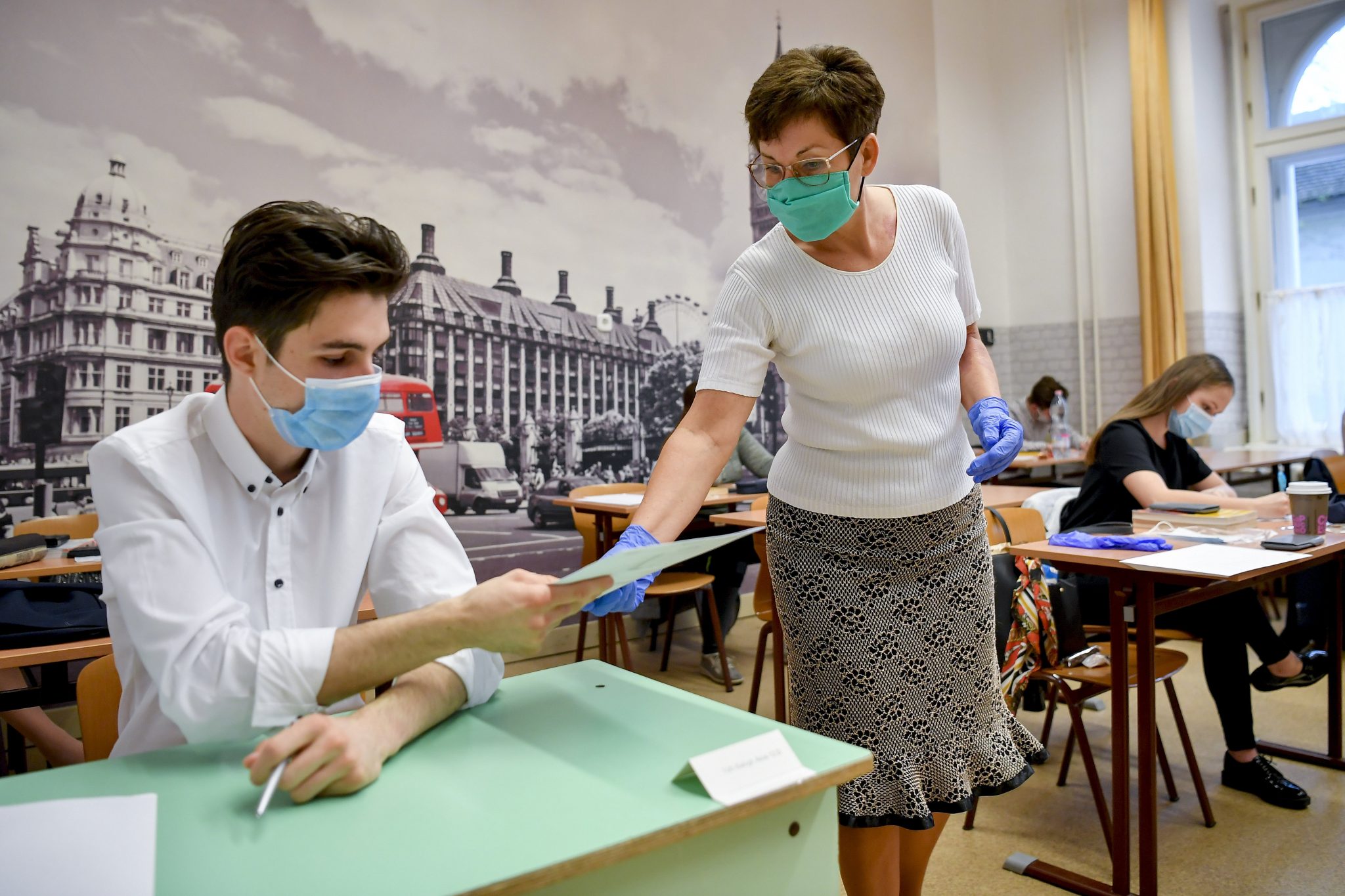
The average gross salary is highest among those in managerial positions - nearly HUF 800,000 (EUR 2,225).Continue reading

“The strike is on because the government cannot delay the response any longer to public education’s neglected state,” says the Teacher’s Union’s (PSZ), and the Democratic Union of Hungarian Teachers’ (PDSZ) statement regarding the warning strike, to be held on January 31st, between 8 and 10 a.m. Organizers say if the government still refuses to substantially address the “crisis,” they will go on a general strike from March 16th.
Last year’s negotiations all failed with the government, as the Orbán administration promised a major wage raise in 2023, and for this year only promised a 10% hike (in the form of a wage supplement which can be taken away at any time) and an increased cafeteria, which the unions labeled “ridiculous.”
According to their main demands, teachers want their salaries to be once again linked to the actual minimum wage. According to a 2015 modification, the 2014 level of the minimum wage was made the salary’s projection base instead of the moving sum (the minimum wage was HUF 101,500 (EUR 285) at the time). This resulted in teacher’s wages not following the increase of the minimum wage in the past seven years. So while the minimum wage has doubled since then, teachers’ salaries stuck, resulting in a young teacher today earning just as much (or even less) than a 17-year old who has just finished vocational school. They also say they are overloaded and want less working hours.
The Ministry of Human Capacities (EMMI) labels the action an “obvious campaigning action of the left,” attributing the timing to the approaching elections.
EMMI stated that before strike talks held three months ago, they had ‘made a deal with Mrs. Gyurcsány [Klára Dobrev]’, and that their aim wasn’t to reach an agreement but to stir up political sentiments. The Ministry said that the strike announced for Monday wasn’t legal, as there was no final court ruling on it, and that “children could be taken to school without any worries.”
The Ministry’s statement makes seriously offensive statements that are likely to mislead strikers, obstruct the exercise of their constitutional right to strike, intimidate workers who intend to strike, and intimidate the leaders of institutions, the two unions said in a statement.
They argue that the ministry cannot take a position on the legality of the strike, only courts can do so. At the same time, they also regret that the government is seeking to make political capital out of “the growing misery of tens of thousands of education workers.”
We call on the government to come back to the negotiating table with a real offer, rather than mud-slinging.”
More recently, in reaction to the legal doubts, PSZ’s president argued that by Sunday the question may be settled. Zsuzsa Szabó also encouraged everyone to participate in the demo and asked parents to take their children to school only at 10 o’clock.
The teacher’s unions won’t be the only ones to protest, as the Hungarian Confederation of Trade Unions (MASZSZ) will also hold a demonstration on the same day to express solidarity with the teachers.
At the talks about the strike, EMMI’s Deputy Secretary of State, László Kisfaludy, reportedly wanted the unions’ representatives to make participant teachers hold 75% of their classes during the two-hour long strike, which would be equivalent to at least one of their classes.
However, in this case, they would have to work for free, as those on strike are not paid, the unions argued, also pointing out that this would just decrease the strike’s efficacy in increasing awareness. Therefore, this condition is unacceptable for them.
“The rights of public education staff to strike must not be restricted,” Budapest Mayor Gergely Karácsony said in a statement jointly signed with mayors of the united opposition in support of the warning strike.
Striking is “their fundamental right… to raise their voices against the grievances they have suffered,” the statement read, adding that “the government is planning to use ignoble means to thwart the strike planned for January 31.”
In their statement, the mayors said they had received reports of heads of schools threatening retaliation against employees participating in the strike action. “We condemn any attempt at restricting this action,” they added.
“The government should… negotiate rather than intimidate; find a solution rather than threaten,” according to the statement.
In reaction to the government wanting teachers to hold classes (for free) during the strike, Momentum MEP Anna Donáth reacted that
“in the country of the privileged, [Orbán’s fast-emerging childhood friend] Lőrinc Mészáros is entitled to overpriced public procurement while teachers deserve free labor.”
In fact, it is not only the trade unions that support the strike. The P.E. teacher, who during the Covid restrictions demonstrated how to swim on an ironing board, faced criticism for it, and therefore handed in his resignation, also stands by the strike.
In addition, in January, a new teacher addressed the Prime Minister since Viktor Orbán’s mother had also worked as a teacher.
If your mother were a young teacher now, would you begrudge her the salary she needs to make a decent living?,
they ask in the letter, after explaining that in 2021, the net salary of a teacher with an MA degree came to HUF 145,000 (EUR 407), plus a HUF 15,000 wage supplement, “which means that you will take home HUF 160,000 (EUR 449) altogether.”
He also detailed that he lives in a mouldy, 17 sqm basement flat which lacks heating, with electricity only, which makes utility bills so high in winter-time, that it only leaves him HUF 40,000 (EUR 112) a month to live on. In addition, according to his calculations, there were weeks when he worked a total of 57 hours, which makes his net hourly wage HUF 701 (EUR 2), and does not receive any assistance. “No clothing allowance, no year-end bonuses, no cafeteria, no extra benefits whatsoever. There is no social safety net under me, I work my heart out, but I am balancing on the edge of homelessness.”
This desperation just adds to an ever increasing shortage of teachers. EMMI’s latest statistics, for example, show that while in 2018, six thousand new teachers started their profession, this number has dropped to two thousand as of 2020/2021.
featured image illustration via Tibor Rosta/MTI